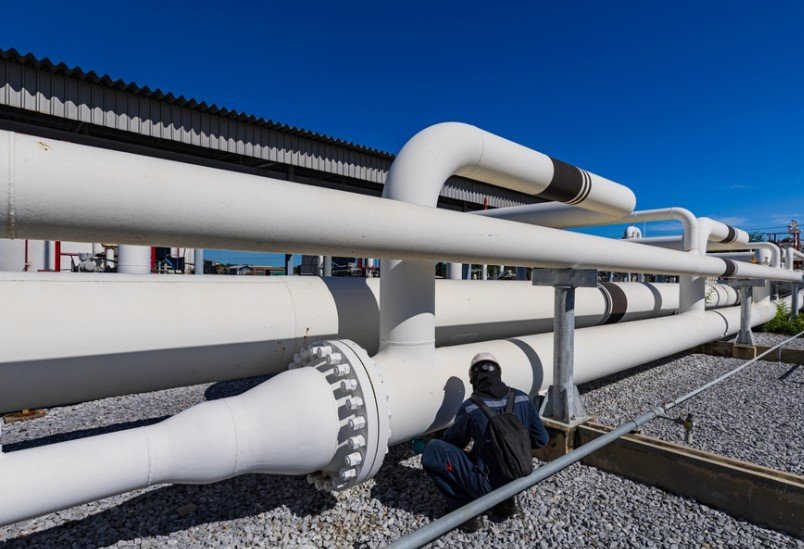Egypt has extended its natural gas import agreement with Israel’s NewMed Energy, boosting supplies from the Leviathan field until 2040 in a $35 billion deal. Prime Minister Mostafa Madbouly stated that the original pact dates back to 2019, and it will not change Egypt’s firm support for Palestine amid ongoing regional conflicts.
Background of the 2019 Agreement
The deal started as a way for Egypt to secure reliable energy sources while building its position as a regional hub. Back in 2019, Egypt signed contracts to import gas from Israel’s offshore fields, including Leviathan and Tamar, to meet growing domestic needs and support exports.
This setup allowed Egypt to use its liquefied natural gas facilities in the north to process and redistribute the fuel. Over the years, the agreement has helped stabilize energy supplies in the face of fluctuating global prices.
Experts note that such pacts reflect practical economic ties in the Middle East, even during political strains. The extension comes at a time when Egypt faces higher energy demands from population growth and industrial expansion.
Details of the Extension and Its Scale
The updated agreement increases gas volumes by 130 billion cubic meters, extending deliveries through 2040. NewMed Energy announced this as Israel’s largest export deal ever, valued at $35 billion.
Supplies will ramp up in phases. The first phase boosts daily flows from 450 million cubic feet to 650 million cubic feet, adding about 20 billion cubic meters overall.

This move aims to lock in cheaper gas prices for Egypt compared to global markets. Madbouly highlighted that the extension secures affordable energy, which is vital for households and businesses.
Here are key aspects of the deal’s impact:
- Economic Benefits: Egypt expects to save on import costs and enhance its role in regional energy trade.
- Supply Security: The pact reduces reliance on volatile international markets.
- Infrastructure Use: It maximizes Egypt’s pipelines and LNG terminals for better efficiency.
Madbouly’s Defense Amid Public Backlash
Prime Minister Mostafa Madbouly addressed critics during a recent press conference, stressing that the deal predates the latest Gaza conflicts. He made it clear that economic decisions do not sway Egypt’s political positions.
Madbouly pointed out Egypt’s consistent support for Palestine, including aid efforts and diplomatic pushes for peace. He argued that without Egypt’s balanced approach, regional stability could suffer more.
Public reactions have mixed, with some praising the energy security and others questioning the timing. Social media discussions show growing debates on how such deals fit with broader foreign policy.
The government insists the agreement focuses solely on energy needs. Officials say it aligns with Egypt’s long-term plan to become a key player in natural gas distribution across the Mediterranean.
Regional Implications and Energy Strategy
This extension strengthens Egypt’s ambition to act as a gas hub for Europe and beyond. By importing from Israel, Egypt can re-export processed LNG, boosting its economy.
Ties with Israel on energy have grown since the 2018 agreements, despite occasional tensions. Recent global events, like shifts in European gas demands after 2022 supply disruptions, have made such deals more critical.
Egypt’s domestic production has dipped in recent years, making imports essential. The Leviathan field, with reserves over 600 billion cubic meters, provides a steady source.
| Aspect | Original 2019 Deal | 2025 Extension |
|---|---|---|
| Duration | Up to 2030 | Until 2040 |
| Volume | 64 billion cubic meters | Additional 130 billion cubic meters |
| Value | Around $15 billion | Total $35 billion |
| Daily Supply | 450 million cubic feet | Up to 650 million cubic feet |
| Purpose | Meet domestic needs | Enhance hub status and exports |
Challenges and Future Outlook
While the deal promises benefits, it faces hurdles like geopolitical risks and environmental concerns. Critics worry about over-reliance on one supplier amid unstable relations.
Egypt plans to invest in infrastructure to handle increased flows, including pipeline upgrades. Looking ahead, the country aims to balance imports with boosting its own fields, like the Zohr discovery.
Analysts predict this could lead to more regional cooperation, potentially involving other nations. For now, the focus remains on ensuring stable, affordable energy for Egyptians.
As this story develops, share your thoughts in the comments below. What do you think about Egypt’s energy strategy? Spread the word by sharing this article with friends interested in Middle East affairs.
